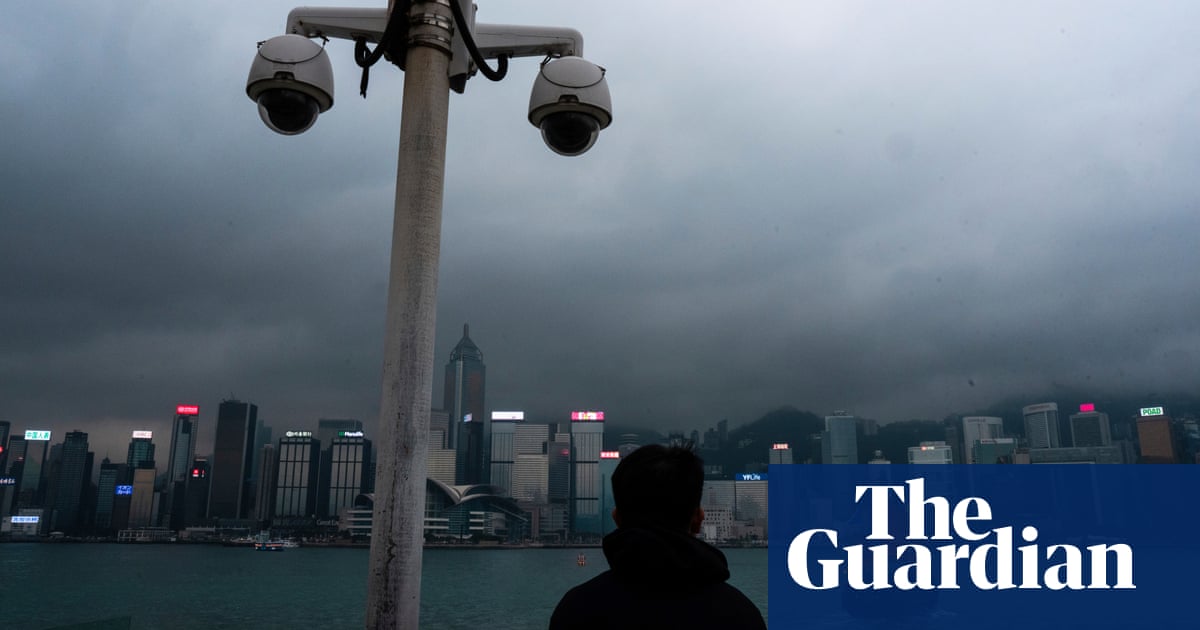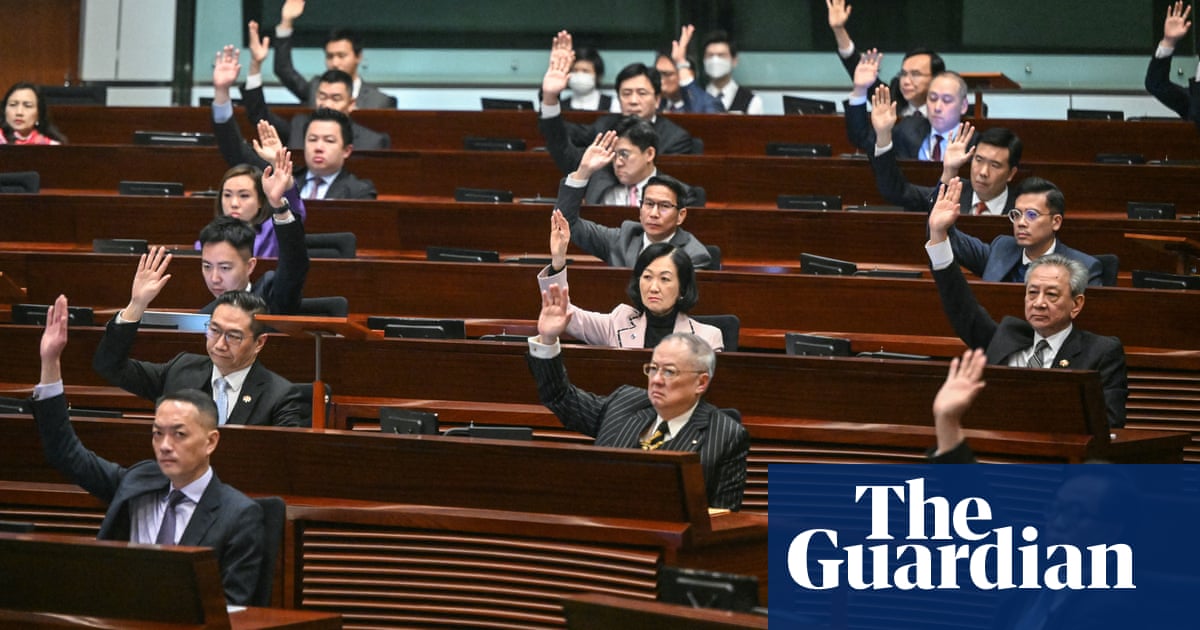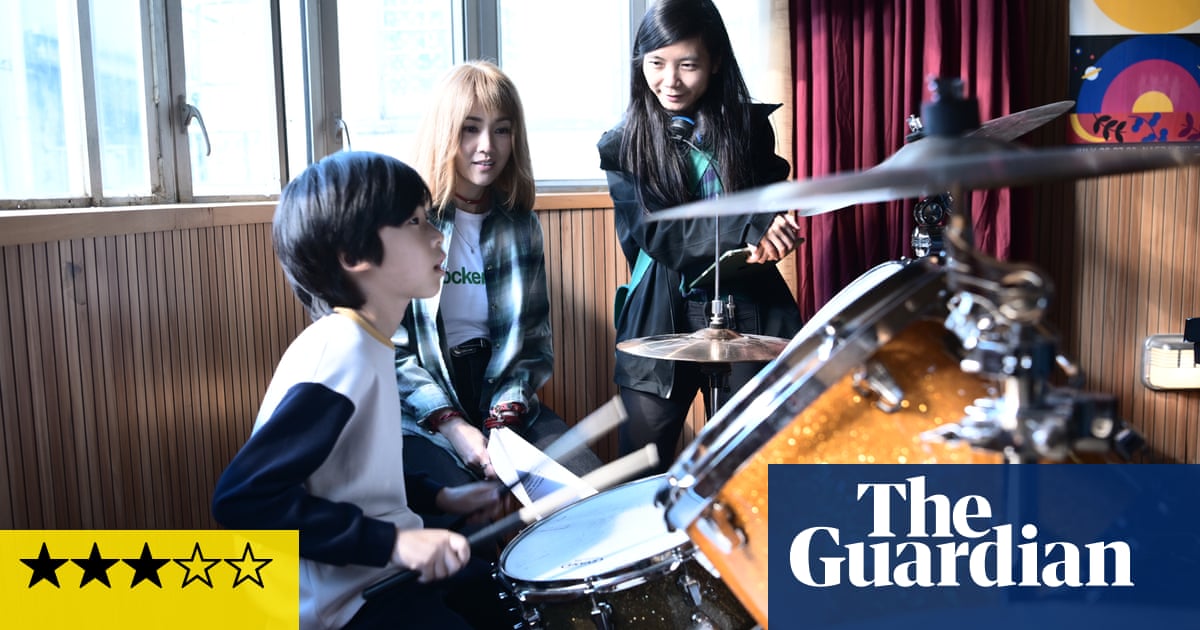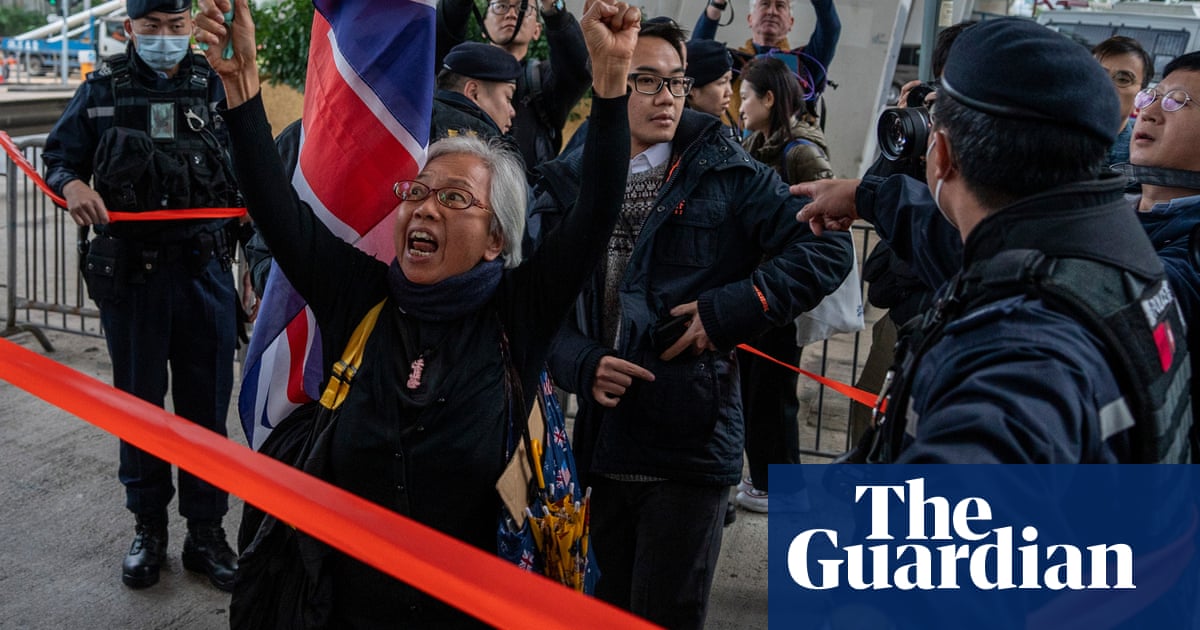
“Ideas are bulletproof”. Three words, stamped out in multicolour tiles above a doorway, represented one of the last vestiges of Hong Kong’s once vibrant literary spaces. On 31 March, Mount Zero, a beloved independent bookstore in Hong Kong, closed its doors for the final time. Hundreds of Hongkongers came to say goodbye.
The bookshop, which opened in 2018, took its slogan from the 2005 film V for Vendetta; the eponymous antihero’s Guy Fawkes mask occasionally appeared during Hong Kong’s pro-democracy protests.
Mount Zero’s closure, which was announced after what the owner said was repeated inspections from the authorities, came as Hongkongers are coming to terms with a new reality of life with not one but two national security laws, which critics say are being used to crush dissent.
“People are quickly adjusting to the idea that the old days of public expression are no more,” says Bao Pu, the founder of New Century Press, a publishing house.
The pro-democracy protests that rocked Hong Kong in 2019 and 2020 feel like an increasingly distant memory. Where 2 million people once flooded the streets to oppose the government’s plans to establish closer links with mainland China, an individual can now be jailed for wearing a “seditious” T-shirt.
The quietening is largely because of a national security law that Beijing imposed on Hong Kong in June 2020. Authorities say the law was necessary to restore stability; critics say the vaguely worded crimes of secession, subversion, terrorism and collusion with foreign forces effectively criminalise dissent.
Considering the millions of people who took to the streets in 2019 and 2020, relatively few people have actually been arrested under the law: 292 as of 31 January.
“That is intentional,” says Jeffrey Wasserstrom, a professor of Chinese history at the University of California, Irvine, and author of Vigil: Hong Kong on the Brink. More than 800 people have been arrested for rioting, while nearly 300 people have been targeted using a colonial-era sedition law. Protesters have been targeted with more than 100 different types of offences. “It is hard for people to realise how much things have changed when you see these divided-up numbers,” Wasserstrom says.
And now the authorities have another tool in their arsenal: Article 23, a homegrown national security law that covers newly defined acts of treason, espionage, theft of state secrets, sedition and foreign interference.
The government has been on the offensive in condemning what it calls “scaremongering” about the new legislation. A spokesperson said it “only targets an extremely small minority of people who endanger national security”.
The legislation has been decades in the making. It comes from a provision in Hong Kong’s 1997 Basic Law. But a previous attempt to implement it in 2003 prompted 500,000 people to protest, causing the bill to be shelved. In 2024, the streets were silent.
“The children of the [2003] protesters are now going to suffer through what their parents fought against,” says Mark Sabah, director of the Committee for Freedom in Hong Kong Foundation.
Both of those generations have been swept up in a mass trial of pro-democracy figures who are waiting – most of them in jail cells – for judges hand-picked by the chief executive to decide their guilt or innocence. The prosecution of the Hong Kong 47, as they’ve come to be known, includes well-known figures such as Joshua Wong and Benny Tai and has been extensively criticised by foreign governments, human rights groups and the defendants’ lawyers.
First arrested in 2020, they were accused of plotting to bring down the government by holding informal pre-election primaries. The formal charge is “conspiracy to subvert state power”. The arrests themselves were labelled politically motivated.
The 10-month trial ended in December. A verdict would normally be expected within six months, but given the complexity and size of the proceedings – 16 of the 47 pleaded not guilty, with the remainder awaiting sentencing – many expect it to be delayed. The accused have already spent more than 1,000 days behind bars and face sentences of up to life in prison.
And while observers wait for that verdict, there are also concerns about the ongoing trial of Jimmy Lai, a British citizen and former medial mogul who has been detained since December 2020. His trial for colluding with foreign forces is expected to end in May, having been plagued by accusations that it is politically motivated and that one of the witnesses was tortured. The 76-year-old faces spending the rest of his life in prison.
Outside the courts, the government is keen to give the impression that life continues as normal. There are dozens of major events planned for the first half of this year, a lineup the government says will attract locals and tourists to “participate and experience Hong Kong’s unique glamour”. More than 75,000 people attended this year’s Art Basel, according to its organisers, despite calls to boycott the art fair because of concerns about censorship.
And despite the widespread feeling among activists that Hong Kong is becoming like any other Chinese city, differences remain. The territory still has an open internet. It is still possible to buy materials that are banned in mainland China, although the number of vendors is dwindling. Bao’s New Century Press recently published a biography of a senior Chinese Communist party official who played an important role in the Cultural Revolution. A Chinese buyer despaired when the book was confiscated on three separate occasions as he tried to take it into the mainland.
“And so far nobody has kidnapped me,” Bao jokes. “Not yet.”
But the chipping away of civil society continues. On 10 April, a representative from the NGO Reporters Without Borders was detained for several hours at Hong Kong International airport and then deported, as she attempted to travel to the city to monitor Lai’s trial. In March, Radio Free Asia, a US-funded media outlet, closed its Hong Kong bureau, citing fears for staff safety because of Article 23. A journalist at the South China Morning Post went to Beijing in October for a defence conference and disappeared. At least 90 NGOs and 22 media groups have closed since the 2020 national security law, according to the Centre for Asian Law at Georgetown University.
“If we really want Hong Kong to go back to a prosperous, safe and free city, I think we need to have a rapprochement, a dialogue with some people,” says Emily Lau, a veteran pro-democracy politician and former legislator. “Most people here accept that we are part of China. They’re not going to use violence to overthrow the government, but they would like the freedom to express their views … like they have been doing for decades.”
On 11 April, Mount Zero posted photographs of its final day on Instagram. “People came one after another, a few young people asking each other, what exactly are we going to do?” the caption reads. “No one knew the specific answer.”












